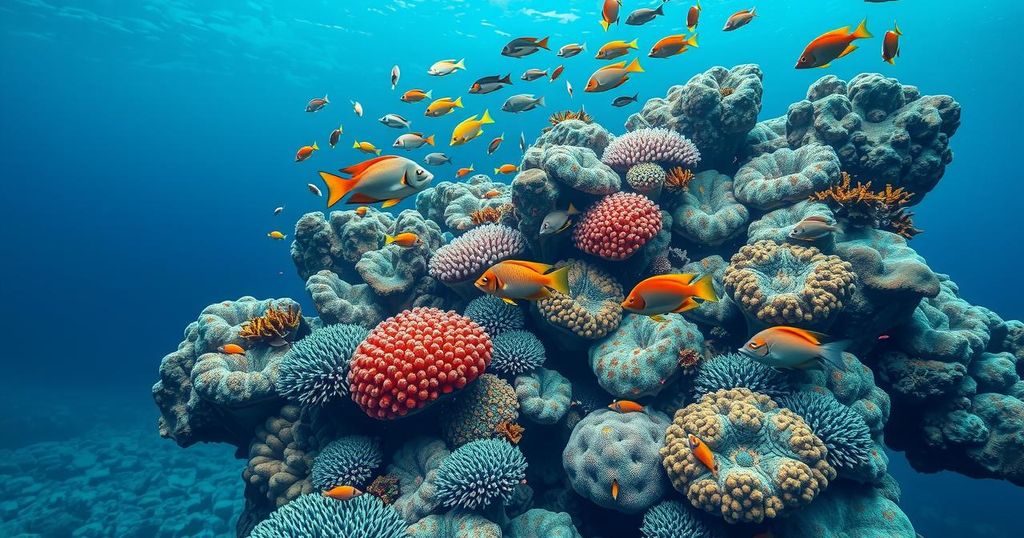Climate Change Endangers Zanzibar’s Blue Economy and Key Industries
Zanzibar’s blue economy is at risk from climate change, which adversely affects fisheries, tourism, and agriculture due to rising sea levels, coral reef destruction, and erratic weather. These sectors support nearly two-thirds of the population, with a workshop highlighting the urgent need for protective measures against food insecurity and declining fish populations.
Zanzibar’s blue economy faces significant threats due to climate change. Rising sea levels, coral reef destruction, saltwater intrusion, and unpredictable weather patterns adversely impact crucial sectors, including fisheries, tourism, and agriculture. These industries collectively support nearly two-thirds of Zanzibar’s population, making the situation critical for the region’s economic stability.
During a Circular Economy workshop, Omar Mohamed, the coordination officer at the Ministry of Blue Economy, reported that approximately 54% of Zanzibar’s population is affected by these climatic shifts. He emphasized the urgency of implementing measures to safeguard livelihoods and maintain food security in the face of these imminent challenges.
Mohamed stated, “Coral reef destruction is crippling tourism and fisheries, while saltwater intrusion and erratic rainfall are jeopardizing freshwater sources and agricultural productivity.” He pointed out that the fishing industry contributes between 4% and 8% to the GDP, whereas tourism accounts for over 29%, highlighting the economic ramifications of neglecting environmental protections.
Another participant, Mohamed Hamad, underscored the need for government intervention, citing research and testimonies from fishermen regarding declines in fish breeding grounds. The pressing nature of these developments was noted in reports from Citizen Tanzania, reinforcing the requirement for immediate action to address these issues affecting the islands.
Located in the Indian Ocean, just 15 miles off the coast of Tanzania, Zanzibar’s unique environment is at risk, demanding a concerted effort to enact sustainable practices and protect its vital resources.
In summary, climate change poses an existential threat to Zanzibar’s blue economy, with dire implications for fisheries, tourism, and agricultural sectors. With a substantial portion of the population relying on these industries, immediate action is essential to protect livelihoods and food security. The concerns raised during the Circular Economy workshop highlight the urgent need for comprehensive government initiatives to combat these challenges and preserve Zanzibar’s economic and environmental integrity.
Original Source: globalsouthworld.com




Post Comment